第34章
Sir Rowland's eyes blazed. "Anon, Your Grace, when, having failed of your proofs, you shall be constrained to restore me to liberty, I shall ask Your Grace to unsay that word."Albemarle stared, confounded, and in that moment the door opened, and Trenchard sauntered in, cane in hand, his hat under his arm, a wicked smile on his wizened face.
Leaving Blake's veiled threat unanswered, the Duke turned to the old rake. "These rogues," said he, pointing to the prisoners, "demand proofs ere they will admit the truth of the impeachment.""Those proofs," said Trenchard, "are already in Your Grace's hands.""Aye, but they have asked to be confronted with their accuser.
Trenchard bowed. "Is it your wish, then, that I recite for them the counts on which I have based the accusation I laid before Your Grace?""If you will condescend so far," said Albemarle.
"Blister me...!" roared Blake, when the Duke interrupted him.
"By God, sir!" he cried, "I'll have no such disrespectful language here. You'll observe the decency of speech and forbear from profanities, you damned rogue, or by God! I'll commit you forthwith.""I will endeavour," said Blake, with a sarcasm lost on Albemarle, "to follow Your Grace's lofty example.""You will do well, sir," said the Duke, and was shocked that Trenchard should laugh at such a moment.
"I was about to protest, sir," said Blake, "that it is monstrous Ishould be accused by Mr. Trenchard. He has but the slightest acquaintance with me."Trenchard bowed to him across the chamber. "Admitted, sir," said he.
"What should I be doing in bad company?" An answer this that set Albemarle bawling with laughter. Trenchard turned to the Duke. "I will begin, an it please Your Grace, with the expressions used last night in my presence at the Bell Inn at Bridgwater by Mr. Richard Westmacott, and I will confine myself strictly to those matters on which my testimony can be corroborated by that of other witnesses.
Colonel Luttrell interrupted him to turn to Richard. "Do you recall those expressions, sir?" he asked him.
Richard winced under the question. Nevertheless, he braced himself to make the best defence he could. "I have not yet heard," said he, "what those expressions were; nor when I hear them must it follow that I recognize them as my own. I must admit to having taken more wine, perhaps, than. . . than..." Whilst he sought the expression that he needed Trenchard cut in with a laugh. "In vino veritas, gentlemen," and His Grace and Sir Edward nodded sagely; Luttrell preserved a stolid exterior. He seemed less prone than his colleagues to forejudging.
"Will you repeat the expressions used by Mr. Westmacott?" Sir Edward begged.
"I will repeat the one that, to my mind, matters most. Mr. Westmacott, getting to his feet and in a loud voice, exclaimed, "God save the Protestant Duke!""Do you admit it, sir?" thundered Albemarle, his eyes glowering upon Richard hesitated a moment, pale and trembling.
"You will waste breath in denying it," said Trenchard suavely, " for I have a drawer from the Bell Inn, and two gentlemen who overheard you waiting outside.""I'faith, sir," cried Blake, "what treason was therein that? If he...""Silence!" thundered Albemarle. "Let Mr. Westmacott speak for himself."Richard, inspired by the defence Blake had begun, took the same line of argument. "I admit that in the heat of wine I may have used such words," said he. "But I deny their intent to be treasonable. There are many men who drink to the prosperity of the late Kings s son...""Natural son,sir ; natural son," Albemarle amended. "It is treason to speak of him otherwise.""It will be a treason presently to draw breath," sneered Blake.
"If it be," said Trenchard, "it is a treason you'll not be long committing.""Faith, you are right, Mr. Trenchard," said the Duke with a laugh.
Indeed, he found Mr. Trenchard a most pleasant and facetious gentleman.
"Still," insisted Richard, endeavouring in spite of these irrelevancies to make good his point, "there be many men who drink daily to the prosperity of the late King's natural son.""Aye, sir," answered Albemarle; "but not his prosperity in horrid plots against the life of our beloved sovereign.""True, Your Grace; very true," purred Sir Edward. "It was not so Imeant to toast him," cried Richard. Albemarle made an impatient gesture, and took up a sheet of paper. "How, then," he asked, "comes this letter - this letter which makes plain the treason upon which the Duke of Monmouth is embarked, just as it makes plain your participation in it - how comes this letter to be found in your possession?" And he waved the letter in the air.
Richard went the colour of ashes. He faltered a moment, then took refuge in the truth, for all that he knew beforehand that the truth was bound to ring more false than any lie he could invent.
"That letter was not addressed to me," he stammered.
Albemarle read the subscription, "To my good friend W., at Bridgwater."He looked up, a heavy sneer thrusting his heavy lip still further out.
"What do you say to that? Does not `W' stand for Westmacott?""It does not."
"Of course not," said Albemarle with heavy sarcasm. "It stands for Wilkins, or Williams, or ...or ...What-not.""Indeed, I can bear witness that it does not," exclaimed Sir Rowland.
"Be silent, sir, I tell you!" bawled the Duke at him again. "You shall bear witness soon enough, I promise you. To whom, then," he resumed, turning again to Richard, "do you say that this letter was addressed?""To Mr. Wilding - Mr. Anthony Wilding," Richard answered.